Analysis: What is proposed in Wales' curriculum change?
- Published
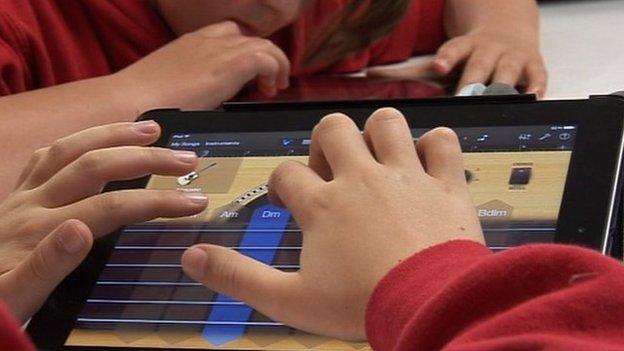
The report says more emphasis should be put on digital skills
So what changes might we see to the national curriculum, which has been part and parcel of how pupils in Wales have been taught since the late 1980?
The national curriculum was given the go-ahead in 1988 under education reforms by the then education secretary Kenneth Baker and started to be taught in schools in September 1989.
Mr Baker had said that "we can no longer leave individual teachers, schools or local authorities to devise the curriculum that children should follow".
The world was a bit different 26 years ago - the mobile phone was in its infancy; the internet had not been invented.
There have been attempts at tweaks since but this has led to an over-complicated and incoherent system.
Prof Graham Donaldson of Glasgow University - a former teacher and chief inspector of schools - was asked to lead a wide-ranging review by the Welsh government nearly a year ago.
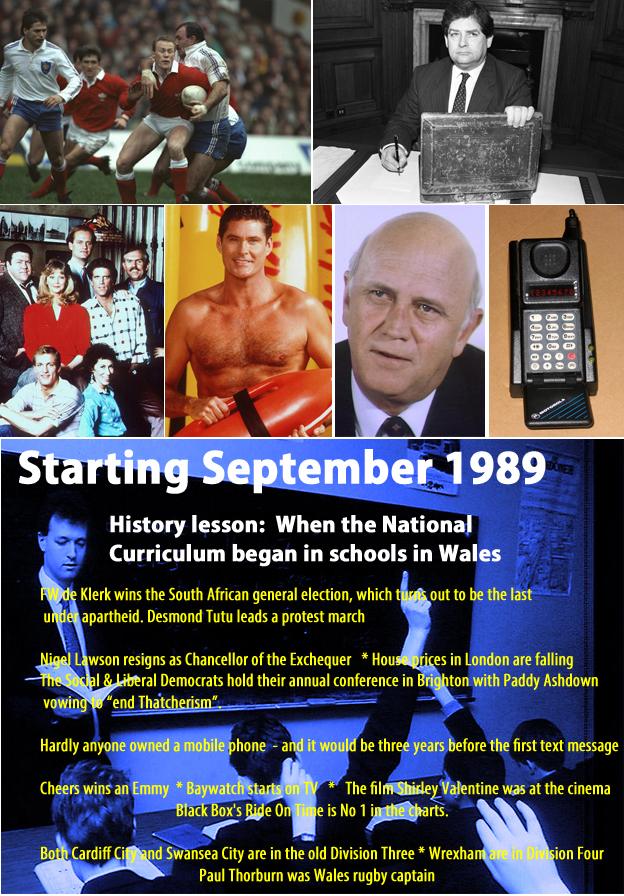
This is what was happening when the National Curriculum came in
Margaret Thatcher gave Ken Baker the freedom to reform the curriculum

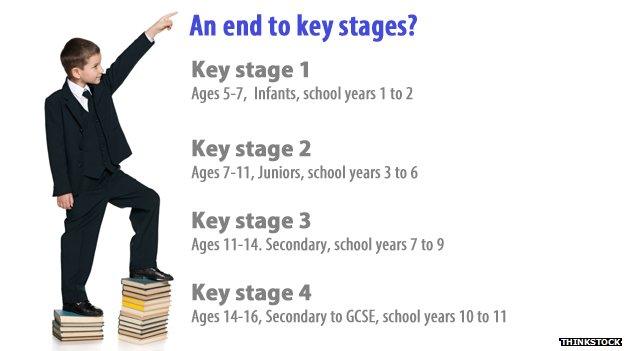
Instead of four stages, pupils would follow a more seamless progression
AN END TO A STOP-START SCHOOL JOURNEY
Prof Donaldson wants to do away with the idea of having four key stages in schools.
He says the "transitions" between them leads to too much of a disconnect for pupils; that teachers and schools do not see the education system as one long process, but rather a series of blocks.
They all have different characteristics which are "unhelpful" for pupils whereas they should feel their time in school is one "journey". It is all too complicated at the moment, it is seen as "stop-start".
So he wants to see five "progression steps" at three-year intervals.
The idea is that, instead of going from stage to stage, a pupil's time in school will be one long process.
It would mean, for example, that primary and secondary schools would have to work together much better, rather than being seen as a "new beginning".

INTRODUCING DIGITAL COMPETENCE
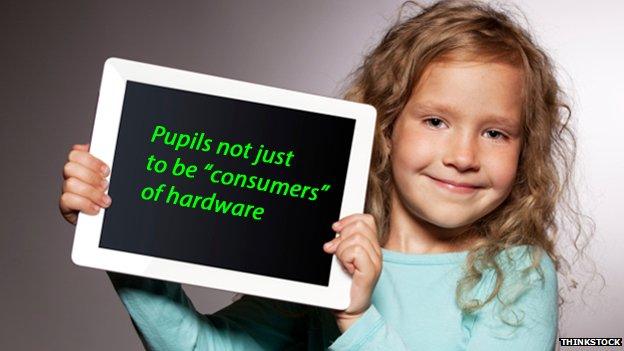
Not just tapping on a tablet but coding and programming
At the moment in Wales there is a Literacy and Numeracy Framework, external (LNF). Those two elements are embedded into every aspect of the curriculum; they're weaved into every subject.
For example, even pupils in PE lessons are expected to work out the maths of how far they run and how quickly.
Prof Donaldson wants that to continue, but wants a third cross-curricular element to be included - digital competence.
This would be more than just using computers - it would equip pupils with the ability to programme and code computers. Teachers would have to think of ways of weaving that, along with literacy and numeracy, into every lesson.
The subject of computer science needs to be developed and strengthened in schools. All pupils would have a decent grasp of it through the cross-curricular digital competence, and more able pupils could get a more in-depth education through the computer science subject.

TOO MUCH TESTING?
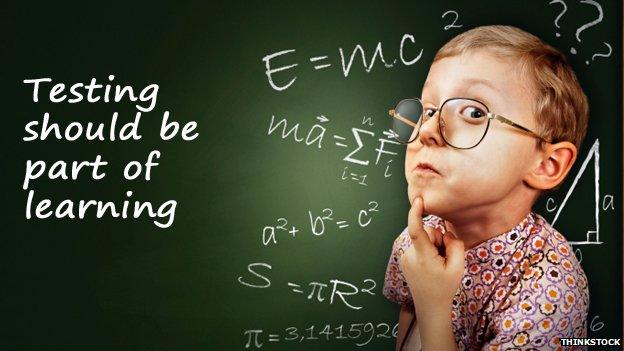
Radical changes to testing is preferred
Testing in schools should continue but be very different to what we have now.
At the moment, pupils are tested every year in Wales from the age of seven. The results are used to track and monitor the progress of pupils and also to judge the relative success of schools.
This needs to change. Without saying so explicitly, Prof Donaldson suggests very heavily that there is too much testing and that it is not being used correctly.
He thinks pupils should be tested less often, and that it should be "part of learning".
At the moment he thinks there is too much emphasis on testing for accountability rather than for learning.
He said: "Testing can be an important learning tool. And if I'd have to choose between accountability and learning, I'd go with learning every time."
In his report there will be more details about what tests should look like in future, although he thinks there needs to be a conversation within the profession about how they should be used in future.
But he added: "There needs to be a radically different way of working in future."

SCHOOLS COULD GET MORE FLEXIBILITY
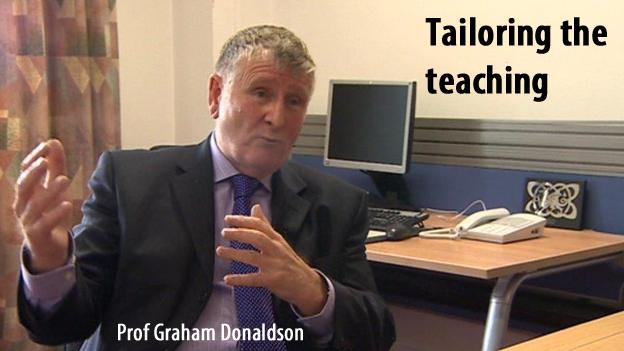
At the moment, Prof Donaldson thinks the national curriculum is too prescriptive. It does not give schools the flexibility they need to tailor teaching to their own needs.
In England, academies make up half of all schools. They have much more freedom over what they teach. This should not happen in Wales.
He says there should still be a central curriculum but schools will be able to interpret the curriculum, rather than have to follow every element to the dot.
He added we should stop obsessing about comparing ourselves to England.

HOW SUBJECTS ARE TAUGHT
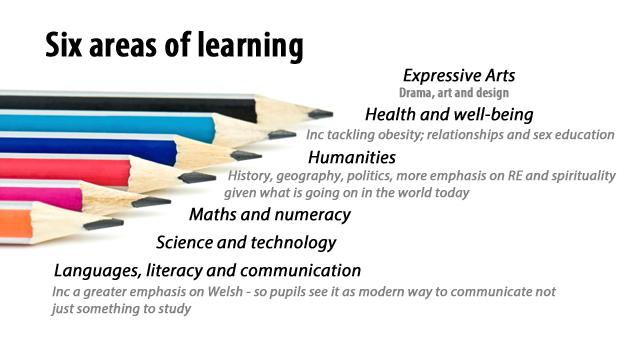
At the moment, subjects are taught within a "core" and "non-core" framework. It basically ranks subjects in order of importance: English, Welsh, science and maths are the core subjects.
The non-core subjects are: art and design, design and technology, geography, history, information and communication technology, modern foreign language, music, physical education and Welsh as a second language.
This needs to go, Prof Donaldson says and instead there should be six areas of learning.

HOW SOON WILL THIS HAPPEN?
Prof Donaldson will not be drawn on a precise timescale but is keen that while we do not rush it we do not lose momentum either.
Education Minister Huw Lewis has said it could take a decade or more of "heavy lifting and hard work" from teachers before the new curriculum is in place.
Wednesday's announcement will not be the end. To paraphrase Churchill, it will not even be the "beginning of the end". It will, however, "be the end of the beginning".
- Published17 February 2015
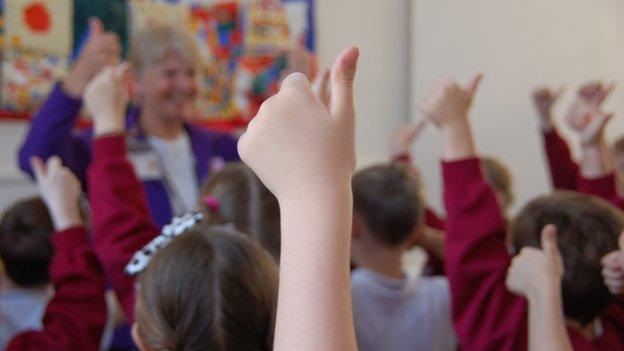
- Published1 September 2014
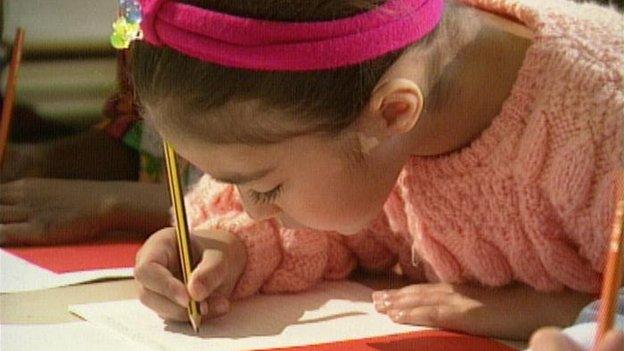
- Published12 March 2014
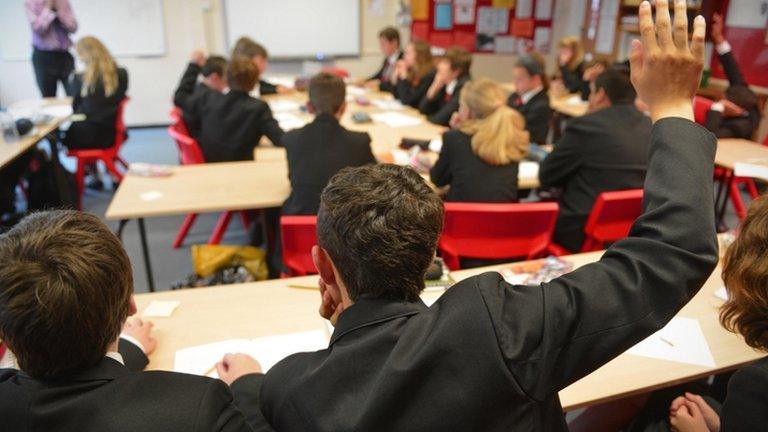
- Published17 February 2015
